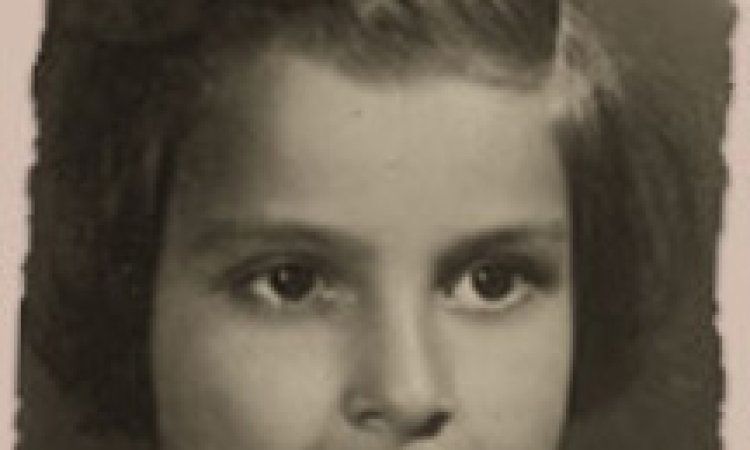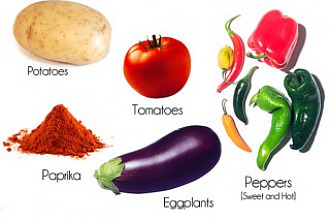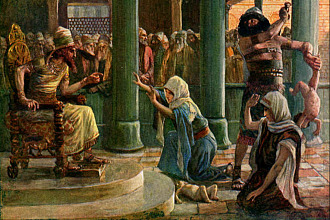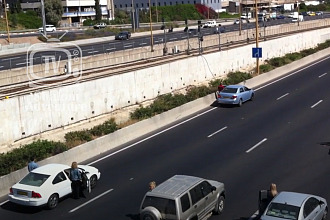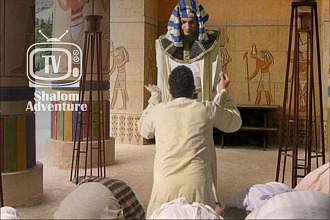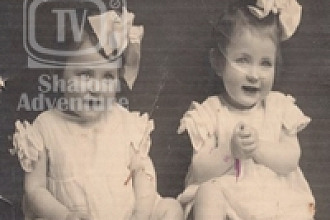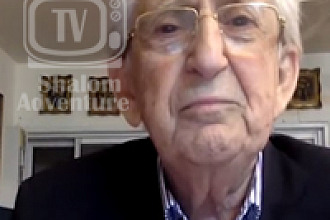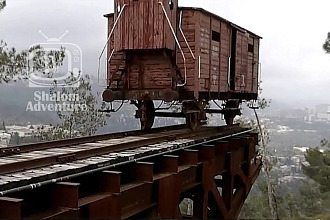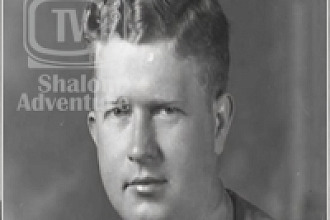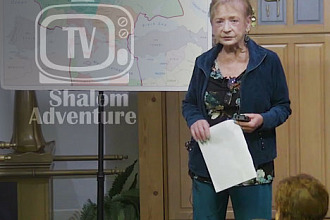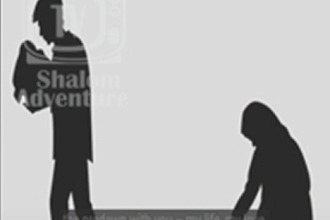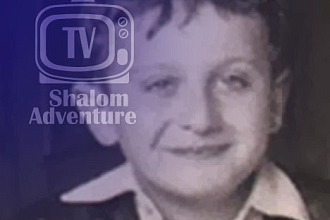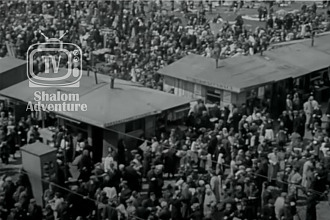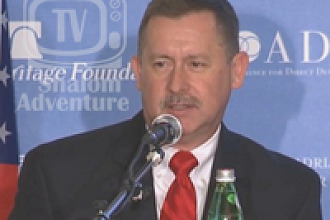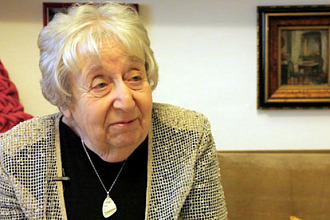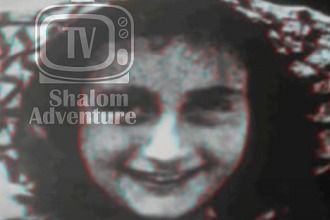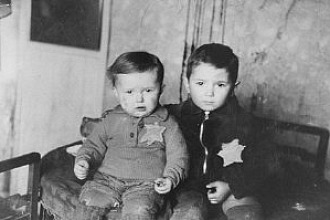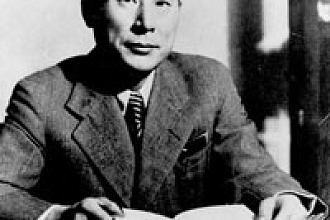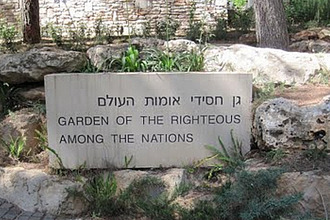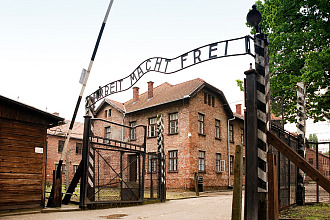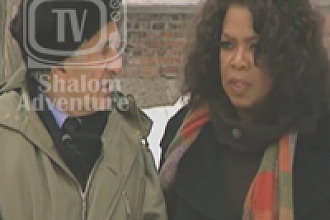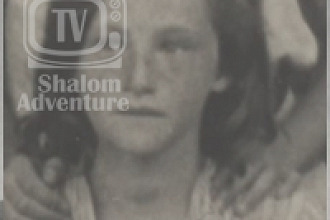On February 6, 1947, 11 1/2-year-old Krystyna Chiger was interviewed by Magistrate Maria Holender. During the war, she had been hidden with her family in the sewers of Lvov, a city in Poland. Here is what she said.
When Daddy found out that there would be a liquidation of the Ghetto, we hid in the cellar. We usually went there in the afternoon when Mommy would come back from work. I was 7 years old then and I knew about everything.
Later we headed for the sewer. It was very wet and dark. I was very scared and I was shaking, but I tried to be calm and only asked Daddy if we still had far to go. There were stones with yellow worms crawling all over. We put all our things over the stones and sat on top of them.
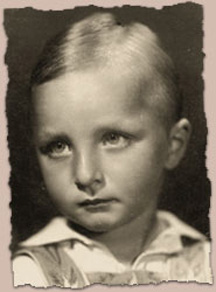
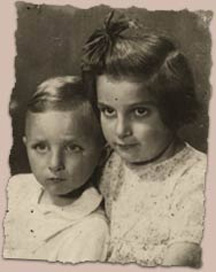 It was awful there. Water seeped from the walls and it smelled bad. I saw large, red rats which ran by us just like chickens. At first I was very afraid, but later I got used to it. My little brother, Pawelek, was not scared at all.
It was awful there. Water seeped from the walls and it smelled bad. I saw large, red rats which ran by us just like chickens. At first I was very afraid, but later I got used to it. My little brother, Pawelek, was not scared at all.
I lay on Mommy's knees and Pawelek was on Daddy's. This lasted five weeks. We couldn't move or get up. There were 20 other people with us. Every day, from the first day, the Polish sewer workers brought us food: black bread and margarine. They were very nice to us.
Because they were afraid that someone might notice them, they always came into the sewers through different sewer covers.
We had a carbide lamp which was lit all the time. It hung from a hook. Daddy brought us water in a jug which he carried in his teeth because he had to walk very stooped. I was not allowed to talk loudly; I only whispered into Mommy's ear. I dreamt that the war would end so that we could go out into the world. I missed the sunshine, the air and the flowers. Once, I asked our sewer workers for some field flowers. I wanted to see our dog, but I didn't tell Mommy because she had so many other worries.
In the summer, when the rain seeped in, there was a lot of water everywhere. Then we had to lean very low on the stones right next to the wall so that the water would not flow on us. Pawelek was very small at that time. He was only 3 years old, and he cried a lot. Mommy was very upset because she was afraid that someone would hear us. Once, a man who was hiding with us got so angry at Pawelek that he pointed a gun at him.
After five weeks, other sewer workers found our hiding place. We had to run away. We ran through the main pipe, straight ahead, and we didn't know where we were going. Suddenly, we saw our sewer workers. They were very surprised and asked us where we were going. Daddy told them everything. Then they led us to a side pipe and told us to stay there overnight. In the morning, they led us farther in. While walking, I felt much better. I did not have to sit any more. I walked barefoot in a summer dress. I was shaking from the cold but I felt happy. I got a pin in my foot but I took it out myself because I didn't want to delay the others. We finally reached a cement pipe and we stayed there the whole day. It was so cold there that we couldn't stand it. There was also no place to sleep. The next day our friends led us away again. By then we were only 11 people. The others had died.
Once, my Uncle Kuba almost drowned in the Poltwa when he went for water and there was a storm. He went under because the water pulled him down. In this new sewer, we had it much better. There was more room. We slept on cots which Daddy built from planks that he found. I slept with Daddy and another man. It was very crowded and uncomfortable. Mommy slept with Pawelek and a lady. The rats ate our bread. When Daddy frightened them with a stick, they ran away. Pawelek fed the rats as if they were pets. The rats came very close and squeaked, but Pawelek wasn't scared. One lady cooked soup and coffee and Mommy divided it
among us so that I was not hungry. Pawelek got used to everything and he no longer cried. One lady gave birth to a child. They covered this child with a washbasin. It suffocated and was thrown into the Poltwa.
I heard how cars drove above us. I heard people's voices and children playing and laughing. I thought how happy I would be if I could play like them. I got very sick with measles. Then Pawelek got it from me. One sewer worker brought him eggs in his teeth. He had to crawl to come to us.
We lived like this for 14 months. Our sewer workers helped us all the time. When we ran out of money they brought us food for nothing.
Towards the end of our hiding, I heard the whistles of sirens and the noise of cannons. I was afraid but I knew that our liberators, the Russians, were near. One day we heard a strong knocking on the sewer grates. These were our sewer workers who told us that we were free. For a few minutes we walked through the pipe, then we pulled away the sewer cover and our sewer workers pulled us up on the surface of the earth. We no longer looked like children. People felt sorry for us and one lady bought us gooseberries. I was so happy when I saw the sun, flowers and people. But Pawelek cried a lot. He wanted to go back to the sewer because he wasn't used to the light and he was afraid of people.
Originally from here
Posted on Shalom Adventure by: Brenda Miller

